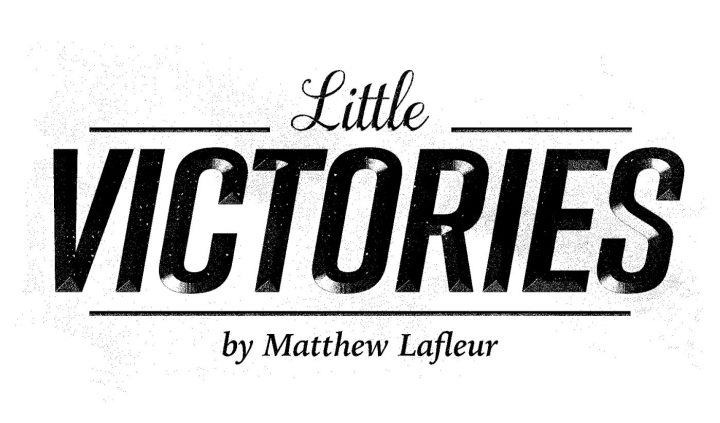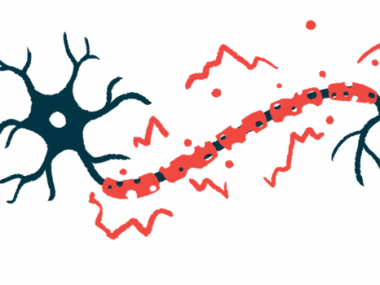Finding the ‘Why’ and Bearing the ‘How’
Written by |

Reminders of life’s beginning and end kept cropping up unexpectedly this week. My 4-month-old niece was baptized, initiated into her parents’ faith, and began a journey. Days later, I heard from an online friend that his son died of complications from FA last year. A few hours later, I spoke to another friend who was about to fly halfway across the country to attend the funeral of an 18-year-old man who also died of FA complications. Although I didn’t know either of these guys, I wish I had. They are: Matt Rupel, 26, who lived until Aug. 5, 2017, and Sam Brown, who lived until Aug. 3, 2018.
It seems fitting that this week gave me one reminder of a journey’s beginning and two reminders of a journey’s end.
Though it’s true for everyone, a journey’s end and its unpredictable nature are especially present when facing a disorder such as FA. Our journey is random, sometimes cruelly so. Which abilities are affected, and when, vary from patient to patient. The cynic who lives in my head thinks of it as a crapshoot, a twisted carnival game. Even our birthdays are less happy reminders of a journey’s start and more like grim markings that its end is approaching, as my friend Frankie soberly writes in her column.
So here is a confession: I think about death. Often. It seems that with FA, it comes with the territory; we can’t ignore the reality that our daily activities of living become more difficult over time. We notice the downhill slant, so we raise our heads to see the bottom, the journey’s end.
Is it morbid to talk so openly about death?
I think that finding thoughts of death morbid is a privilege that people with life-shortening conditions don’t have. As someone with FA, here is where I am: staring ahead at the end of the downhill trail I find myself on. I often lose my footing; I want to shout at the merciless moon, knowing that only the wind will respond with an empty echo. I feel lost, wandering aimlessly. “Why keep going?” I ask myself more often than I’d like to admit.
And if the story ended here, with my sole focus on my journey’s end, it would be just another sad story of a guy who gave in to unfortunate genetic circumstances.
But I am too hard-headed for that. And I want everyone else with a life-shortening condition to be as well.
As Friedrich Nietzsche philosophized, “He who has a why to live for can bear almost any how.”
The irony of the similarity of his first name to Friedreich’s ataxia isn’t lost on me.
I’ve struggled with the “how” to live. If all I focus on is myself, my body becoming gradually more disabled, or the ugly likelihood of an early death, I am crippled, unable and unwilling to move forward.
I look for the “why” — the reason to live. And I see signs of it (perhaps ironically) in the memory of Sam Brown and Matt Rupel. In Sam’s honor, his family and friends collected donations for the Friedreich’s Ataxia Research Alliance (FARA), which aims to find a treatment or a cure for FA. I was fortunate enough to chat with my new friend Bart Rupel, Matt Rupel’s dad, just over a year after his son’s death. We spoke about the importance of going forward, despite the hollowness he feels. He even encouraged me by saying, “One day, we will find a cure!”
As we chatted, he didn’t mention his newly bald head. But I had seen a picture, so I knew: A few years ago, Bart’s son Matt shaved his head to raise money for FA research. This year, on the one-year anniversary of Matt’s passing, Bart and eight others shaved their heads. In a year, 40 people have shaved their heads in memory of Matt and to raise money for FARA.
And there, I think, is the “why” to live — for some goal bigger than ourselves. When I focus only on the end of my trail, or only on myself, I lose hope and it all feels futile. But if I see myself as heading toward a goal, well, then I can bear my circumstances.
Finding a cause bigger than ourselves is what I think Nietzsche meant about finding a “why” and bearing the “how.” I don’t think that I have found the secret key to happiness, or anything as grand as that. But I am surviving. And I am happy. And I think that’s enough.
***
Friedreich’s Ataxia News is strictly a news and information website about the disease. It does not provide medical advice, diagnosis or treatment. This content is not intended to be a substitute for professional medical advice, diagnosis, or treatment. Always seek the advice of your physician or another qualified health provider with any questions you may have regarding a medical condition. Never disregard professional medical advice or delay in seeking it because of something you have read on this website.







Leave a comment
Fill in the required fields to post. Your email address will not be published.